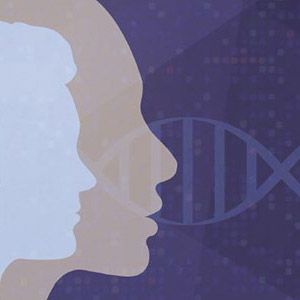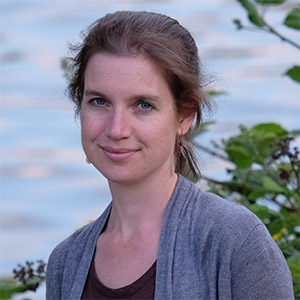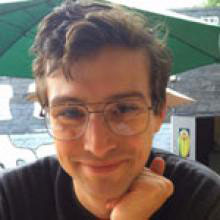When the leads dried up in the rape and murder of a young woman in Idaho Falls, police turned to Ancestry.com, hoping to find someone related to the killer. Their search led them to a New Orleans filmmaker, whose father’s DNA had appeared on the popular website.
The initial genetic match was strong, and the filmmaker was under suspicion for a month before additional DNA testing exonerated him. It is the first known case where police conducted a forensic familial search using a commercial DNA database — and it raised all kinds of ethical questions.

It was, in short, a perfect case study for the UW School of Public Health’s Institute for Public Health Genetics — the only graduate program of its kind that bridges the science with the ethical, legal and social implications of genetic discoveries.
“What people contribute to these databases could be used negatively against them and their family members,” says alumna Taryn Hall (PhD ‘16), who studied the case as part of her dissertation on the Y-chromosome in forensics. “It’s a violation of privacy and may be risking unlawful searches.”
Revolutionary advances over the past decade have also helped us understand the genetic influences on diseases. “We have the complete genetic picture,” says Bruce Weir, Institute director and a pioneer in statistical genetics. “It’s a blessing that we have all this information, all this data. The curse is we have to interpret it, to tease out bits of the genetic information that are important and affect our health.”
Most recently, scientists successfully used a gene editing technique called CRISPR to fix a mutation in a human embryo that causes heart disease. Such discoveries also highlight a need to educate professionals on the implications of translating genetic advances to clinical and public health practice.
In the case of direct-to-consumer genetic testing, says PhD student Sarah Nelson, “public health professionals and geneticists should be aware of both the harms and benefits.” Non-traditional tests are available for less than $50, and a discounted 23andMe kit was a top-selling item on Amazon Prime Day 2017.

“Knowledge of genetic risk may empower people to make preventive health decisions, or it could confuse and mislead people,” says Nelson, who, as part of her dissertation, is surveying people who have accessed their genetic data. She cites ongoing debate about how tests will affect the cost of health care.
Nelson is also interested in understanding how people are using third-party tools to learn about their genetic data. For example, Athletigen, a Canadian company, uses a person’s DNA to recommend ideal exercises and GeneKnot connects people with similar genetic risk. She hopes to finish her project in 2018.
The Institute, housed in the Department of Biostatistics, exposes students to more than 50 faculty in public health, medicine, law, ethics and other fields. Deborah Bowen, professor of bioethics and humanities, and Anna Mastroianni, professor of law, are assistant directors. The program’s expert faculty include Timothy Thornton, who studies genetic risk factors of African-Americans and other groups with multiple ancestries; Nanibaa’ Garrison, who works closely with Native American populations; and Gail Jarvik, UW’s medical genetics division head, who is leading the coordinating center for a national effort to understand genome sequencing in patient care.
More than 100 students have graduated from the Institute since it was founded by former SPH Dean Gilbert S. Omenn in 2002. Many now work for federal and state agencies, including the National Institutes of Health and the Washington State Department of Health. Some work for the National Human Genome Research Institute, and others are at Google and Seattle Genetics.

William Gordon, a master’s student in genetic epidemiology, is excited by “the sheer power” of public health genetics. “I don’t think I can study anything else that still keeps me up at night,” he says.
Gordon is working with Sara Lindstroem, assistant professor of epidemiology, to understand the genetic variants associated with “cancer in the broadest sense.” The project aims to quantify and map the shared genetic contribution to cancers ranging from skin, breast, colorectal, lung, ovarian and prostate. It presents “a real statistical challenge,” he adds, “and often leads to ethical and legal dilemmas due to unexpected results and lurking variables.”
The Institute offers four interdisciplinary graduate degrees, including a PhD, MPH, MS and concurrent JD/MPH. The Institute is also assisting with planning for a master’s in genetic counseling. A degree in the burgeoning field will be offered through SPH in 2018.
“One in every two positions for genetic counseling in the U.S. is empty,” says Weir. “The increase in interest in genetic knowledge has given rise to an increase in need for genetic counselors, and there are no training programs in this part of the country.”
On top of that, Weir envisions further growth spurred by the federal government’s Precision Medicine Initiative and the UW-based Genetic Analysis Center. New hires, he says, will bring innovative recruitment tactics and help boost undergraduate programming in public health genetics.
This story was featured in the fall 2017 issue of SPH Connect. Read the full publication here.
